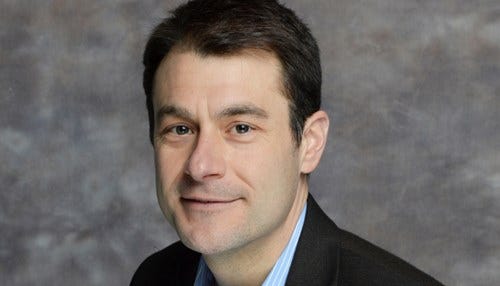Sustain IU: Energy and Climate Work On and Off Campus

Subscriber Benefit
As a subscriber you can listen to articles at work, in the car, or while you work out. Subscribe NowIndiana University is committed to sustainability within and beyond the Sample Gates. Our Bicentennial Strategic plan identifies “sustainability, stewardship and accountability for natural, human, and economic resources” as a core value of the University. This commitment reflects an understanding of the environmental changes we are experiencing and can expect in the future.
To put it into perspective, the Indiana Climate Change Impacts Assessment suggests that under a high-emissions scenario, Indiana’s summer climate by 2050 will be more like that of Arkansas. Although a formidable challenge, addressing change head-on is also an opportunity to create more resilient and prosperous communities. On this last point, IU is like any other large organization, where reducing our greenhouse gas (GHG) impact is very often the smart thing financially. IU has been working in this area of alignment between energy conservation and GHG reduction both on campus and off, and in keeping with our academic mission, students are involved every step of the way.
On our campuses, IU has a multi-pronged effort to reduce energy demand and GHG emissions. We have progressed with system-wide integration of utility data into a utility technology platform that provides timely information on building performance. Using this measurement capability, Sustain IU continues to push utility conservation through our Energy Challenge—one of the largest of its kind nationally—that makes energy conservation a competition for students, faculty, and staff among academic, athletic, student housing, and administrative buildings on campus.
Alongside these conservation efforts, IU is also making investments in efficiency, with one example being IU’s building and infrastructure repair and rehabilitation (R&R) projects. These small projects, which do not include whole-building renovations, create direct energy savings through LED lighting and fixture upgrades, window replacements, air handling unit replacements, building controls upgrades, and replacement of boiler and chilled water systems, among others. All of these efforts have already paid dividends—between FY2010 and FY2017, building energy use intensity per square foot has decreased by 17.6% on the Bloomington campus.
Whether by leading the energy challenge or by doing important data analysis, our student interns are involved in all aspects of sustainability at IU, effectively using our campuses as a laboratory for learning sustainability. Thanks to generous support from the McKinney Family Foundation, Sustain IU was able to extend student training beyond campus through our Indiana Sustainability Development Program, launched in summer 2017. Through the program, we take some of the best trained and brightest sustainability students from our IU campuses and place them in internships with Indiana businesses, non-profits, and municipalities that are dedicated to sustainability progress. Some past partners include Cummins and Ingredion in the business sector and Indiana Recycling Coalition and Earth Charter Indiana, among the non-profits.
For this summer, eight out of 30 student placements will be working with Indiana cities to complete GHG inventories for those communities, laying a foundation for important climate resilience work across the state. These students will be trained and supported by staff in IU’s new Environmental Resilience Institute—created under the IU Grand Challenges program —and dedicated to developing forecasts, strategies and communication necessary to enhance resilience to environmental change.
There is still much work to be done, but I’m optimistic because of the strong Sustain IU spirit on campus and the way that work now transcends campus borders. Whether you work in the public, private, or non-profit sector, I encourage you to enact change and connect with us to advance sustainability in Indiana.
Andrew Predmore is associate director of sustainability at Indiana University.
